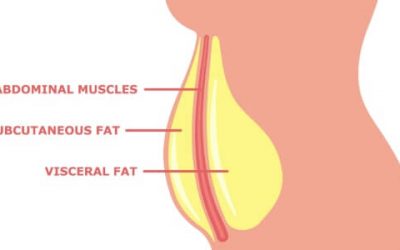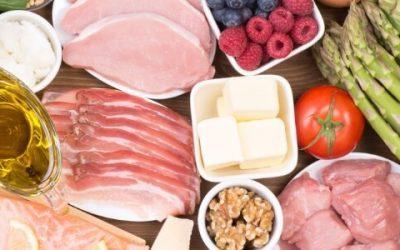As if keeping tracking of your workout routine is not enough, you’ve just been advised to keep track of your nutrition too. If the thought of doing so is enough to make you sweat, consider the age-old proverb, “Great bodies are made in the kitchen.”
Here’s how keeping track of your protein, carbohydrate, and fat intake can help you reach your weight-loss goals faster.
Is it enough to count calories?

A calorie is a unit of energy derived from the food you eat. The foods you consume typically come from a variety of sources, which means your calorie sources vary.
Simply counting the number of calories you eat daily may let you control your portions and your calorie intake, but it doesn’t account for the quality of foods you eat. For example, if you require at least 1,800 Calories a day to function, eating five slices of cheesecake, which equates to that many calories, would obviously be unhealthy.
You may think it obvious that eating only desserts for a whole day is a bad idea. But what if all your meals consisted of nothing but savory foods like chicken nuggets and fries? Same thing, these foods are calorically dense, meaning they contain a disproportionate amount of calories in a relatively small serving. So if you eat nothing but chicken nuggets and assume they would be enough to sustain you, you would be sorely mistaken. Instead, you should fill up on a variety of foods that have high nutritive value. This is where tracking your protein, carb, and fat intake — not just your calories — can help.
What are “macros” and why is it necessary to count them?

“Macros” is short for macronutrients, which are proteins, carbohydrates, and fats. They are the basic components of every diet, and they give your body the energy it needs to function.
Below is a list of how many Calories a single gram of each macro contains:
Carbohydrate = 4 Calories/gram
Fat = 9 Calories/gram
Let’s say you should eat 1,800 Calories every day. How many of those Calories should you get from each macro? That will determine how many grams of each macro you should eat every day. So to achieve a healthy diet, you can’t just count calories.
Should I eat only protein?
Proteins are essential macros due to their muscle-building quality. They are made up of amino acids, which you can get from both animal products like fish and poultry, and plant products like soy. As healthy as a high-protein diet is, the body still requires a proportionate amount of essential amino acids found in proteins as well as nutrients found in carbs and fats for it to function normally.
When does it make sense to eat more carbohydrates?
It makes sense for those who have a very active lifestyle to go on a high-carb diet because they are the most efficient and most accessible source of body fuel. Regularly eating carbs prevents your body from using protein as a source of energy, and tracking your carb intake lets you determine whether or not your body can subsist on lower or higher carbohydrate levels for energy.
Are all fats bad?
Fats are often shunned by nutritionists because they’re calorie-dense, and excessive consumption can lead to a multitude of cardiovascular and other diseases. However, fats perform necessary functions like absorbing vitamins and producing energy, and not all types of fats are harmful. As with proteins and carbs, moderate consumption is key.
Still not losing weight?
If you still haven’t seen great progress in your weight-loss goals despite counting your macros, it could be because you’re miscalculating them or misclassifying the foods you eat. It could also be a simple case of indulging on your “cheat day,” which undermines the balanced diet you’ve had on non-cheat days.
The truth is that there are numerous other factors why counting your macros might not produce encouraging results at first. But make no mistake: It’s better to ensure you’re getting the right proportion of dietary proteins, carbohydrates, and fats than it is to just count calories.
At BodyScene, we take a well-rounded approach to fitness by integrating exercises and nutrition in helping you achieve your ideal physique. Our nutritional therapist can assess your nutrition requirements and customize a detailed dietary plan for you. Looking for a personal trainer online in Dublin call Bodyscene.


